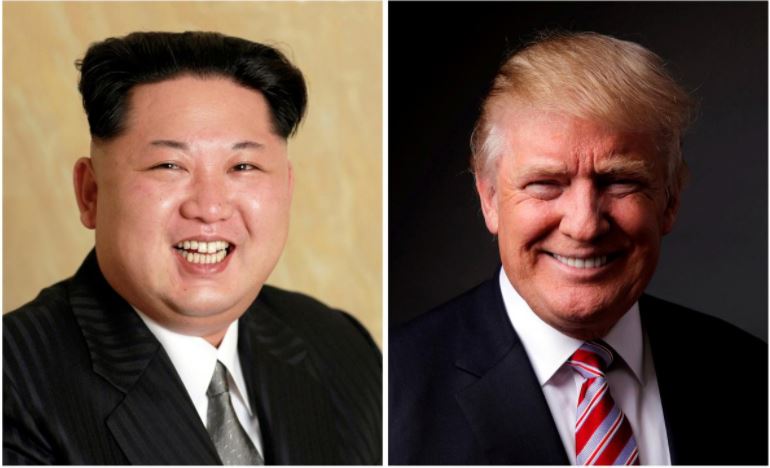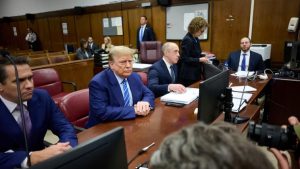The two Koreas, ahead of a leaders’ summit next week, are discussing a peace agreement that could officially end the state of war that has technically lasted since the 1950-53 Korean War, ended with an armistice but no treaty.
US President Donald Trump said the effort has his “blessing”, if North Korea agreed to give up its nuclear arsenal.
South Korea and a US-led UN force are technically still at war with North Korea and the idea of an official peace deal to change that is neither new, nor something that can be resolved in a single inter-Korean summit, analysts say.
What exactly might replace the armistice has been another point of doubt and neither South Korean nor US officials have confirmed what a new agreement would look like.
“There might be some kind of a broad document signed in Singapore, we don’t know yet, that would mark at least, on paper, the formal end of the Korean war, the formal end of hostilities on the Korean peninsula,” explained Jonathan Pollack, a Korea expert and senior fellow in the Foreign Policy program at the Brookings Institute.
“But the problem with that is that hostilities have not ended on the Korean peninsula. North Korea is armed to the teeth, South Korea also has very substantial capabilities of it’s own, the United States has a very significant presence, so none of those things have changed and that is not even getting into the question of the long-term status of North Korea’s nuclear weapons capabilities,” he added.
At the time of the 1953 armistice, South Korean leaders opposed the idea of a truce that left the peninsula divided and were not signatories to the armistice, which was officially signed by the commander of North Korea’s army; the American commander of the UN Command; and the commander of the “Chinese People’s volunteers”, who were not officially claimed by Beijing at the time.
North Korea has previously maintained that it would only negotiate a peace treaty with the United States.
The North’s first leader and founder of the ruling Kim dynasty, Kim Il Sung, for example, raised the idea of a peace deal with US President Jimmy Carter in the 1970s.
North and South Korea have seriously discussed the idea before. In 1992, the two sides agreed to “endeavor together to transform the present state of armistice into a solid state of peace”.
“We’ve been in situations like this before – where the North and South have made momentary accommodation with one another, right now the stakes are much higher, because you now have nuclear weapons deployed in North Korea, you have long-range missiles, you have a variety of threats to the region. Unless and until those issues can be meaningfully addressed, we are not in a… we may be in a cessation of hostilities but the possibility of war would be ever present,” said Pollack.
If Trump and Kim’s summit next week produces a peace declaration formally ending the Korean War as he has suggested, it could give the US president a big headline-grabbing, made-for-TV moment on the world stage.
But the public relations value of such a historic event could quickly fade if Trump fails, in return, to wring any significant concessions from Kim toward the dismantling of his nuclear arsenal, former US officials and analysts say.






